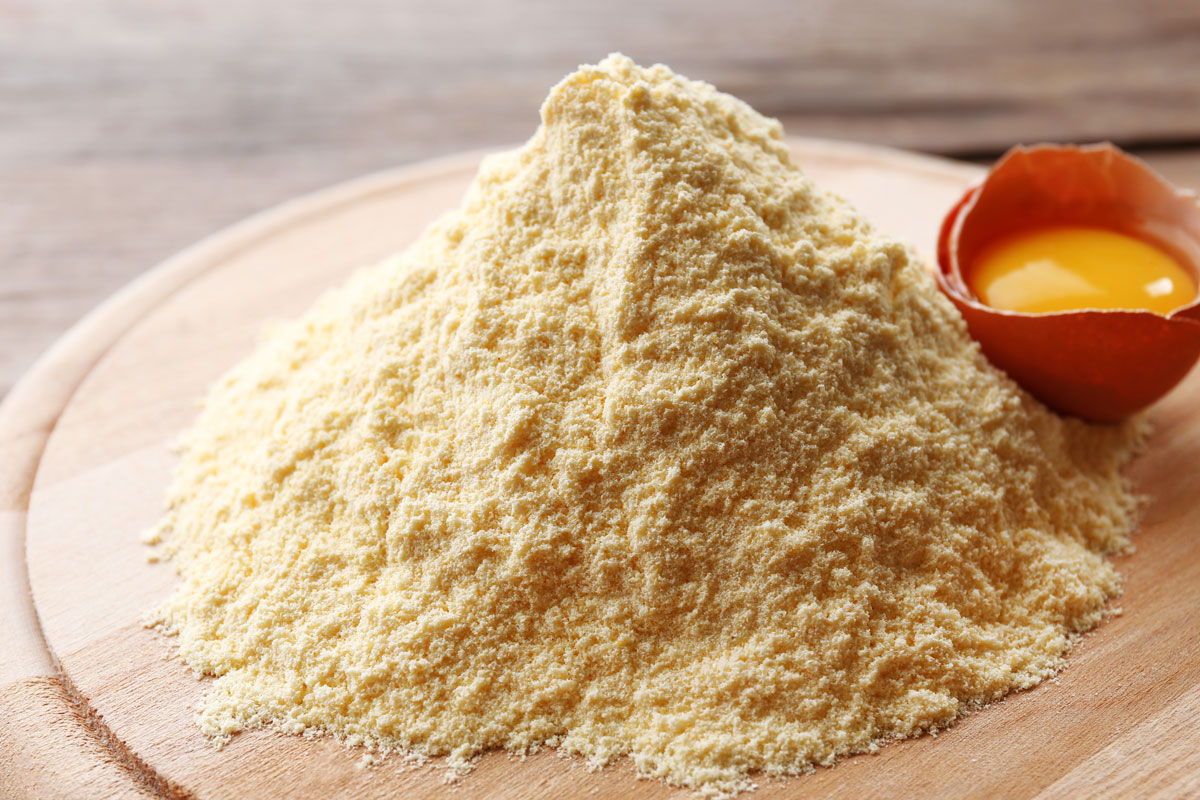

Articles
How To Store Powdered Eggs Long Term
Modified: August 27, 2024
Learn how to store powdered eggs long term with these helpful articles. Discover the best methods and tips to ensure their freshness and quality.
(Many of the links in this article redirect to a specific reviewed product. Your purchase of these products through affiliate links helps to generate commission for Storables.com, at no extra cost. Learn more)
Introduction
In today’s world, being prepared for emergencies and ensuring a stable food supply is more important than ever. One food item that is often overlooked but can be a crucial part of a long-term storage plan is powdered eggs. Powdered eggs are a convenient and versatile food item that can provide essential nutrients and sustenance in times of need.
Whether you’re an avid camper, a prepper, or simply want to have a backup food supply in case of emergencies, storing powdered eggs long term is a wise investment. In this article, we will explore the benefits of storing powdered eggs, discuss factors to consider before storing them, and provide tips on proper storage techniques to ensure their longevity.
So why should you consider incorporating powdered eggs into your long-term food storage plan? The benefits are numerous. First and foremost, powdered eggs have a long shelf life, often ranging from 5 to 10 years, depending on the storage conditions. This makes them an excellent option for stockpiling food that can be used for extended periods without the worry of spoilage.
Another advantage of powdered eggs is their versatility. They can be used in a variety of recipes, including baked goods, omelets, scrambled eggs, and more. This makes them a valuable ingredient that can be used to create a wide range of meals, even when fresh eggs are not readily available.
Powdered eggs are also convenient. They are lightweight, compact, and easy to transport, whether you’re going on a camping trip or needing to evacuate in an emergency situation. They take up minimal space and can be stored in airtight containers, making them an ideal option for those with limited storage space.
Lastly, powdered eggs provide essential nutrients. They are a rich source of protein, vitamins, and minerals, making them a valuable addition to any diet. By having powdered eggs in your long-term food storage, you can ensure that you and your family have access to a nutrient-dense food source during challenging times.
Before diving into the process of storing powdered eggs, there are a few factors you should consider. First, it’s essential to purchase high-quality powdered eggs from reputable sources. This ensures that you are getting a product that has been properly processed and will have a longer shelf life.
In addition, you should evaluate your long-term storage conditions. Ideally, powdered eggs should be stored in a cool, dry, and dark location. Exposure to light, heat, and humidity can accelerate the degradation process and shorten their shelf life. Proper storage containers are also crucial to maintain the quality of powdered eggs over time.
Now that we’ve covered the basics, let’s dive deeper into the specific factors to consider before storing powdered eggs, the proper storage containers to use, and the steps to prepare and store them for long-term use.
Key Takeaways:
- Storing powdered eggs long term offers a versatile, nutrient-dense, and cost-effective food source with a shelf life of 5 to 10 years when stored properly.
- Prioritize proper storage, regular inspections, and adherence to usage guidelines to ensure the safety, quality, and longevity of powdered eggs in your long-term food supply plan.
Read more: How To Store Cocoa Powder Long Term
Benefits of Storing Powdered Eggs
Storing powdered eggs long term can offer several benefits, making them an essential component of any emergency food supply. Here are some of the key advantages:
- Long Shelf Life: One of the most significant benefits of powdered eggs is their extended shelf life. When stored properly in a cool and dry location, powdered eggs can have a shelf life of 5 to 10 years. This makes them a reliable food source during emergencies or when fresh eggs are not available.
- Convenience and Versatility: Powdered eggs are incredibly convenient. They come in a powdered form that is lightweight and easy to transport. They take up minimal space and can be rehydrated quickly, making them ideal for camping trips, hiking, and emergency situations. Additionally, powdered eggs are versatile and can be used in various recipes such as baking, cooking, or making scrambled eggs.
- Nutritional Value: Powdered eggs are a great source of essential nutrients. They are rich in protein, vitamins, and minerals, making them a valuable addition to your diet. By storing powdered eggs long term, you ensure that your food supply contains a nutrient-dense option, which is especially important during times when access to fresh ingredients may be limited.
- Affordability: Compared to fresh eggs, powdered eggs are often more affordable. They can be purchased in bulk, which further decreases the cost per serving. This makes them a cost-effective solution for long-term food storage plans, allowing you to stretch your budget without compromising on quality or nutrition.
- Easy to Use: Rehydrating powdered eggs is a straightforward process. Simply add water and mix until the desired consistency is reached. This makes them a practical option for those with limited cooking skills or in situations where cooking facilities may be limited.
By incorporating powdered eggs into your long-term food storage plan, you can enjoy these benefits and have peace of mind knowing that you have a reliable and versatile food source readily available in times of need. Whether you’re facing natural disasters, power outages, or other unforeseen circumstances, having a supply of powdered eggs can provide sustenance and vital nutrients to keep you and your family nourished.
Factors to Consider Before Storing Powdered Eggs Long Term
Before storing powdered eggs for long-term use, there are several important factors to consider. These factors can directly impact the shelf life and quality of the powdered eggs, ensuring that you have a reliable food source when you need it most. Here are the key factors to keep in mind:
- Quality of the Powdered Eggs: It is crucial to purchase high-quality powdered eggs from reputable sources. Look for brands that have a good reputation for producing long-lasting and flavorful powdered eggs. Quality eggs are properly processed and packaged, ensuring optimal freshness and extended shelf life.
- Storage Conditions: Powdered eggs should be stored in a cool, dry, and dark location. Exposure to heat, humidity, and light can accelerate the degradation process and shorten their shelf life. When selecting a storage area, choose a place that maintains a consistent temperature and is free from moisture or direct sunlight.
- Proper Storage Containers: Investing in proper storage containers is essential for maintaining the quality of powdered eggs. Opt for airtight containers that provide a barrier against air, moisture, and pests. Consider using containers made of food-grade materials to ensure the integrity and safety of the stored eggs.
- Sealing Techniques: To enhance the longevity of powdered eggs, it is crucial to seal the containers properly. Ensure that the lids are secure and airtight to prevent any moisture or air from entering. Consider using vacuum-sealed bags or oxygen absorbers for an added layer of protection.
- Labeling and Rotation: Properly label your powdered eggs containers with the date of purchase or expiration to facilitate an organized rotation system. This practice will help you use the oldest products first and maintain a fresh supply of powdered eggs at all times.
- Room for Expansion: Powdered eggs can expand when exposed to moisture or extreme temperature fluctuations. Leave some room for expansion within the storage containers to prevent them from bursting or becoming damaged.
- Regular Inspections: It is crucial to routinely inspect your powdered eggs for any signs of spoilage, such as clumping, off odors, or discoloration. If you notice any of these signs, it is recommended to discard the product immediately.
- Storage Location Accessibility: When storing powdered eggs long term, ensure that the storage location is easily accessible and can be reached during emergencies or when needed. It is wise to have a backup plan in case the primary storage area becomes inaccessible.
By considering these factors and taking appropriate measures to store powdered eggs, you can significantly extend their shelf life and ensure that you have a reliable and nutrient-dense food source available for an extended period.
Proper Storage Containers for Powdered Eggs
Choosing the right storage containers for powdered eggs is crucial to maintaining their quality and extending their shelf life. The containers you use should provide an airtight seal, offer protection from moisture and pests, and be made from food-grade materials. Here are some options for proper storage containers for powdered eggs:
- Mylar Bags: Mylar bags are a popular choice for long-term food storage, including powdered eggs. These bags are made of durable, food-grade material and offer excellent protection against air, moisture, and light. They are lightweight, easy to seal with an iron or heat sealer, and can be stored in larger containers for added protection.
- Mason Jars: Mason jars are a classic choice for food storage. They are made of glass, which is non-porous and resistant to absorbing odors. Use wide-mouthed jars for easier access and use new lids with a rubber seal to ensure an airtight closure. Mason jars are reusable, easy to clean, and provide a visually appealing way to store your powdered eggs.
- Food-Grade Plastic Containers: Food-grade plastic containers with tight-fitting lids are another option for storing powdered eggs. Look for containers that are specifically designed for long-term food storage and have a seal to keep out air and moisture. Ensure that the plastic used is BPA-free and of high quality to prevent any leaching of harmful chemicals.
- Vacuum-Sealed Bags: Vacuum-sealed bags are an effective way to remove air and create a tight seal around powdered eggs. These bags can be sealed with a vacuum sealer machine or manually using a handheld vacuum sealer. This method removes oxygen, which can help prolong the shelf life of powdered eggs.
- Buckets with Gamma Seal Lids: For larger quantities of powdered eggs, consider using food-grade plastic buckets with gamma seal lids. These lids create an airtight and waterproof seal, ensuring optimal storage conditions. This method is particularly useful for bulk storage or for those with larger storage spaces available.
Regardless of the container you choose, ensure that it is clean and dry before adding the powdered eggs. It is also essential to label each container with the date of storage to facilitate an organized rotation system. Additionally, store the containers in a cool, dry, and dark location to avoid exposure to light and temperature fluctuations.
Remember, the key is to choose containers that provide airtight protection, are made from safe materials, and are suitable for long-term food storage. By using proper storage containers, you can maintain the quality and freshness of your powdered eggs for an extended period.
Preparing Powdered Eggs for Long-Term Storage
Before you store powdered eggs for extended periods, it’s important to properly prepare them to ensure their longevity and quality. Follow these steps to prepare powdered eggs for long-term storage:
- Check for Clumps: Examine the powdered eggs for any clumps or lumps. Break up any clumps by gently pressing them with a fork or sifting the powder through a fine-mesh sieve. Removing clumps helps to prevent moisture from getting trapped, which can lead to spoilage.
- Measure the Quantity: Determine how much powdered egg you want to store long term. Consider your needs, storage space, and the estimated expiration date of the powdered eggs. It’s best to store powdered eggs in small portions to minimize air exposure each time you open a container.
- Maintain Proper Ratios: Follow the instructions provided on the packaging for reconstitution ratio. Generally, it’s recommended to use 2 tablespoons of powdered egg with 2 ½ tablespoons of water to equal one large egg. Remember to adjust the ratios accordingly when reconstituting larger or smaller quantities of powdered eggs.
- Reconstitute the Powdered Eggs: To prepare powdered eggs for long-term storage, you’ll first need to reconstitute them. In a bowl, mix the powdered eggs with water according to the reconstitution ratio. Stir well until the mixture is smooth and slightly thickened. Allow the mixture to sit for a few minutes to ensure complete hydration.
- Dehydrate the Reconstituted Eggs: Once the powdered eggs are reconstituted, you’ll need to dehydrate them to remove any excess moisture. Spread the mixture evenly on dehydrator trays or parchment-lined baking sheets and set the temperature to around 140°F (60°C). Allow the eggs to dehydrate until they are completely dry and crumbly. This process helps to prevent mold or spoilage during long-term storage.
- Cool and Package: Once the dehydrated eggs have cooled, transfer them to your chosen storage containers. Ensure that the containers are clean, dry, and airtight. Remove as much air as possible from the containers to minimize the risk of moisture and oxidation. Consider using oxygen absorbers or vacuum-sealing techniques to further enhance their shelf life.
- Label and Store: Label each container with important information such as the date of preparation and the expiration date of the powdered eggs. Store the containers in a cool, dry, and dark location to maintain optimal storage conditions.
By following these steps, you can properly prepare powdered eggs for long-term storage, ensuring that they retain their quality and nutritional value. When stored correctly, powdered eggs can be a reliable and versatile food source for years to come.
Store powdered eggs long term in a cool, dry place away from sunlight and moisture. Use airtight containers to prevent exposure to air and humidity, which can cause the eggs to spoil.
Read more: How To Store Baking Powder Long Term
Storing Powdered Eggs in a Cool and Dry Location
Proper storage conditions are essential to maintain the quality and shelf life of powdered eggs. Storing them in a cool and dry location is crucial to prevent spoilage and degradation. Here are some key tips for storing powdered eggs in a cool and dry environment:
- Temperature: Choose a storage location with a consistent and moderate temperature. The ideal temperature range for storing powdered eggs is between 50°F (10°C) and 70°F (21°C). Avoid areas that are prone to extreme temperature fluctuations, such as near heaters or windows.
- Avoid Humidity: Moisture is one of the biggest enemies of powdered eggs. High humidity can cause clumping, spoilage, and the growth of mold or bacteria. Choose a location with low humidity levels, ideally below 15 percent. Avoid storing powdered eggs in basements or areas prone to dampness.
- Avoid Direct Sunlight: Exposure to direct sunlight can cause the degradation of powdered eggs. Sunlight can accelerate the breakdown of nutrients and lead to off-flavors in the powdered eggs. Choose a storage location away from windows or areas with direct sunlight.
- Avoid Strong Odors: Powders, including powdered eggs, can absorb odors easily. Store powdered eggs away from any strong-smelling substances, such as cleaning products, chemicals, or spices. These odors can permeate the packaging and affect the quality and taste of the powdered eggs.
- Use Airtight Containers: Place the powdered eggs in airtight containers to protect them from exposure to air, moisture, and pests. The containers should have a secure, tight-fitting lid to create a barrier against external elements. Consider using Mylar bags, mason jars, or food-grade plastic containers with airtight seals.
- Consider Secondary Packaging: If you live in an area with high humidity or extreme temperature fluctuations, consider using additional layers of protection. Double bagging the powdered eggs in Mylar bags or placing the containers in a sealed plastic storage bin can provide an extra layer of insulation against moisture and temperature changes.
- Rotate Your Stock: To ensure the freshness of your powdered eggs, practice a first-in, first-out (FIFO) system. Use the oldest containers of powdered eggs first and replace them with fresh ones. Proper rotation will prevent the powdered eggs from exceeding their recommended shelf life.
- Regularly Inspect and Maintain: Periodically inspect your powdered eggs for signs of spoilage, such as clumping, off odors, or discoloration. If you detect any issues, discard the affected product immediately. It’s also important to check the integrity of the storage containers and reseal any that may have been compromised.
By storing powdered eggs in a cool and dry location with these guidelines in mind, you can ensure their longevity and preserve their quality for an extended period. This will allow you to have a reliable source of nourishment and versatility in your long-term food storage plan.
Recommended Shelf Life of Stored Powdered Eggs
When stored properly in a cool and dry location, powdered eggs can have a significant shelf life ranging from 5 to 10 years. However, it’s important to note that the recommended shelf life may vary depending on factors such as the storage conditions, the quality of the powdered eggs, and the packaging.
Most commercially available powdered eggs are processed and packaged to ensure a long shelf life. The expiration or best-by date printed on the packaging provides a general guideline for the product’s quality and recommended consumption. However, it’s essential to understand that powdered eggs can still be safe to consume even after the expiration date, as long as they have been stored under optimal conditions.
It’s also worth mentioning that the flavor, texture, and nutritional value of powdered eggs may gradually decline over time. While they may still be safe to eat, their quality and taste may not be as desirable as when they were first stored. Therefore, it’s recommended to periodically rotate your stock and consume the older powdered eggs before they exceed their recommended shelf life.
To ensure the longest possible shelf life for powdered eggs, it’s crucial to store them in a cool, dry, and dark location, away from direct sunlight, heat sources, and high humidity. Properly sealed and airtight containers or packaging will also help to maintain the quality of the powdered eggs over an extended period.
It’s worth noting that the storage conditions and quality of the powdered eggs can affect their actual shelf life. Factors such as exposure to moisture, temperature fluctuations, and inadequate packaging can accelerate the degradation process and shorten the shelf life of powdered eggs.
It’s recommended to periodically inspect your stored powdered eggs for any signs of spoilage, such as clumps, off odors, or discoloration. If you observe any of these signs, it’s best to discard the affected product to ensure food safety.
In summary, the recommended shelf life of properly stored powdered eggs can range from 5 to 10 years. However, always check the expiration or best-by date on the packaging as a starting point and use your judgment based on the product’s quality and storage conditions to determine their actual usability.
Factors Affecting the Shelf Life of Powdered Eggs
The shelf life of powdered eggs can be influenced by various factors. Understanding these factors can help you properly store and maintain the quality of your powdered eggs. Here are the key factors that can affect the shelf life of powdered eggs:
- Storage Conditions: The storage conditions play a significant role in determining the shelf life of powdered eggs. The ideal storage environment is cool, dry, and dark. Exposure to heat, moisture, and light can accelerate the degradation process and shorten their shelf life. Properly sealed and airtight containers are also essential to protect the powdered eggs from air and moisture.
- Quality of the Powdered Eggs: The quality of the powdered eggs at the time of purchase can impact their shelf life. It’s important to choose high-quality powdered eggs from reputable sources. Look for brands that have a good reputation for producing long-lasting and flavorful powdered eggs. Properly processed and packaged eggs tend to have a longer shelf life.
- Packaging: The packaging of powdered eggs is designed to protect them from external elements and maintain their quality. Ensure that the packaging is intact and airtight when purchasing powdered eggs. Improperly sealed or damaged packaging can expose the powdered eggs to air, moisture, and contaminants, which can shorten their shelf life.
- Exposure to Air: Oxygen is one of the main factors that can degrade the quality of powdered eggs. Exposure to air can lead to oxidation, resulting in off-flavors, loss of nutritional value, and a shorter shelf life. Properly sealing the powdered eggs in airtight containers, using vacuum-sealed bags, or incorporating oxygen absorbers can help minimize the exposure to oxygen.
- Moisture Content: Moisture is the enemy of powdered eggs. It can cause clumping, spoilage, and the growth of mold or bacteria. The moisture content in the storage environment and the packaging can contribute to the quality and shelf life of powdered eggs. Avoid storing powdered eggs in areas with high humidity or inadequate packaging that can lead to moisture absorption.
- Temperature Fluctuations: Extreme temperature fluctuations can accelerate the degradation of powdered eggs. Fluctuations in temperature can cause condensation inside the packaging, leading to moisture-related issues. It is essential to store powdered eggs in a location with a consistent temperature, avoiding areas prone to heat or cold exposure.
- Microbial Contamination: Proper handling and hygiene practices are crucial to prevent microbial contamination and extend the shelf life of powdered eggs. Ensure that you use clean utensils and equipment when handling powdered eggs. Contaminants like bacteria or mold can cause spoilage and compromise the safety and quality of the powdered eggs.
By understanding and managing these factors, you can extend the shelf life of powdered eggs and ensure that they remain safe and flavorful for an extended period. Consistently monitoring storage conditions, maintaining proper packaging, and practicing good hygiene will greatly contribute to the longevity and quality of your powdered eggs.
Inspecting and Using Stored Powdered Eggs
Regularly inspecting your stored powdered eggs is crucial to ensure their quality and safety. Here are some guidelines for inspecting and using stored powdered eggs:
- Visual Inspection: Before using powdered eggs, visually inspect them for any signs of spoilage, such as clumps, discoloration, or an off odor. If you notice any of these signs, it is best to discard the powdered eggs to ensure food safety.
- Sensory Evaluation: If the powdered eggs pass the visual inspection, conduct a sensory evaluation. Take a small amount and reconstitute it according to the package instructions. Taste and smell the prepared eggs for any off-flavors or odors. If they taste or smell rancid or off, it is best to dispose of them.
- Rehydration Test: Another method to evaluate the quality of the powdered eggs is through a rehydration test. Reconstitute a small amount of the powdered eggs with water and check if they rehydrate properly, resulting in a texture similar to that of fresh eggs. If the rehydration is not successful or the texture is significantly different, it is an indication of potential deterioration.
- Room for Error: Keep in mind that powdered eggs may not have the exact taste and texture of fresh eggs, even when they are in good condition. They may have a slightly different flavor or texture, so do not be alarmed if they do not exactly mimic the characteristics of fresh eggs.
- Usage Guidelines: When using powdered eggs, always follow the instructions provided on the packaging. Different brands may have different reconstitution ratios, so it’s essential to use the correct measurements to achieve the desired results. Adapting your recipes or experimenting with small batches before preparing larger quantities can help you become familiar with the taste and texture of the reconstituted eggs.
- Incorporate in Recipes: Powdered eggs can be used in a wide range of recipes that call for fresh eggs. They can be used in baking, cooking, or as a replacement for scrambled eggs or omelets. Experiment with different recipes and adjust the reconstitution ratio as needed to achieve the desired results.
- Store Properly: After using powdered eggs, ensure that any leftovers are stored properly to maintain their quality. Seal the unused portion in an airtight container and store it in a cool, dry location away from moisture, heat, and light. Proper storage will help preserve the freshness and extend the shelf life of the leftover powdered eggs.
Always prioritize food safety when inspecting and using stored powdered eggs. When in doubt about the quality or safety of the powdered eggs, it is advisable to err on the side of caution and dispose of them to prevent any health risks. Proper handling, regular inspections, and adhering to recommended storage and usage guidelines will ensure that your powdered eggs remain a reliable and versatile food source for an extended period.
Read more: How To Store Egg Noodles Long Term
Conclusion
Storing powdered eggs long term can provide a valuable and versatile food source in times of need. With their long shelf life, convenience, nutritional value, and affordability, powdered eggs are a beneficial addition to any emergency food supply or long-term storage plan.
By considering factors such as the quality of the powdered eggs, storage conditions, and proper packaging, you can ensure that your powdered eggs remain safe and maintain their quality for an extended period. Storing powdered eggs in a cool and dry location, using airtight containers, and regularly inspecting them are essential practices to preserve their freshness.
The recommended shelf life of stored powdered eggs can range from 5 to 10 years when stored under optimal conditions. However, it’s important to check the expiration or best-by date on the packaging and evaluate the quality through visual inspection, sensory evaluation, and rehydration tests. Ensuring that the powdered eggs pass these inspections will help prevent any potential issues related to spoilage or degradation.
When using powdered eggs, follow the reconstitution instructions provided on the packaging and adjust the ratios as needed for different recipes. Keep in mind that powdered eggs may have slightly different taste and texture compared to fresh eggs but can still be used as a suitable substitute in a variety of culinary applications.
In conclusion, storing powdered eggs long term allows you to have a reliable and nutrient-dense food source that can be used in a wide range of recipes. By adhering to proper storage and usage guidelines, you can maintain the quality and ensure the safety of your powdered eggs, making them a valuable asset in times of emergencies, camping trips, or when fresh eggs are not readily available.
Remember to regularly inspect and rotate your stock of powdered eggs to prevent waste and maintain a fresh supply. By incorporating powdered eggs into your long-term food storage plan, you can be better prepared for unexpected situations and have peace of mind knowing that you have a sustainable source of nourishment for you and your family.
Frequently Asked Questions about How To Store Powdered Eggs Long Term
Was this page helpful?
At Storables.com, we guarantee accurate and reliable information. Our content, validated by Expert Board Contributors, is crafted following stringent Editorial Policies. We're committed to providing you with well-researched, expert-backed insights for all your informational needs.
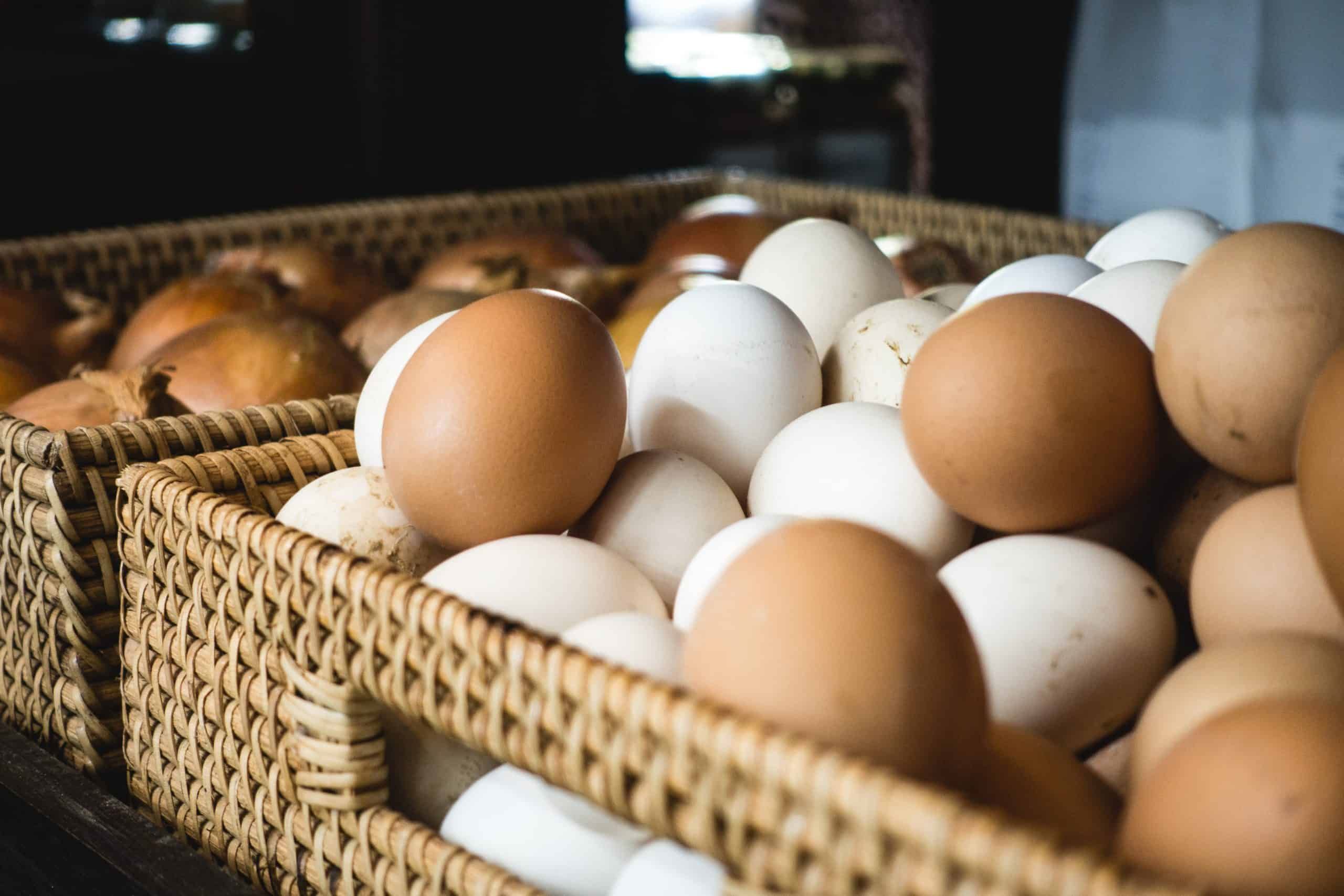
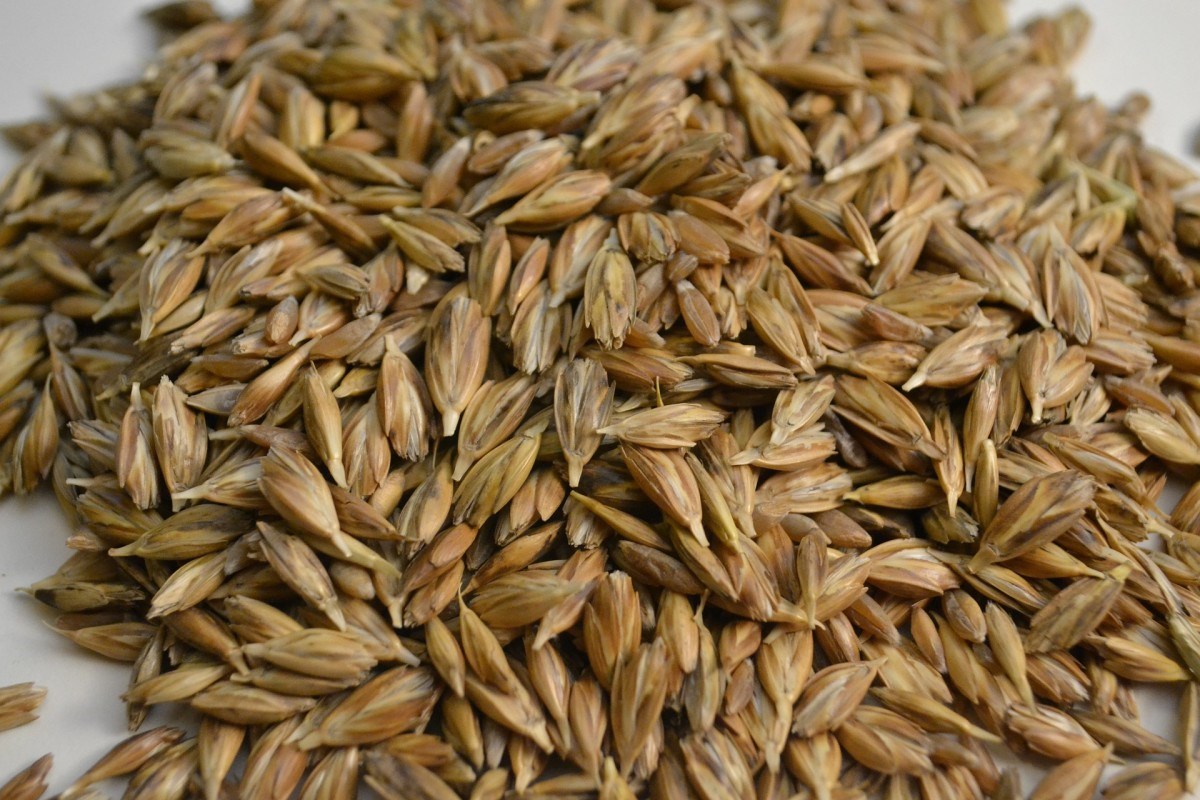

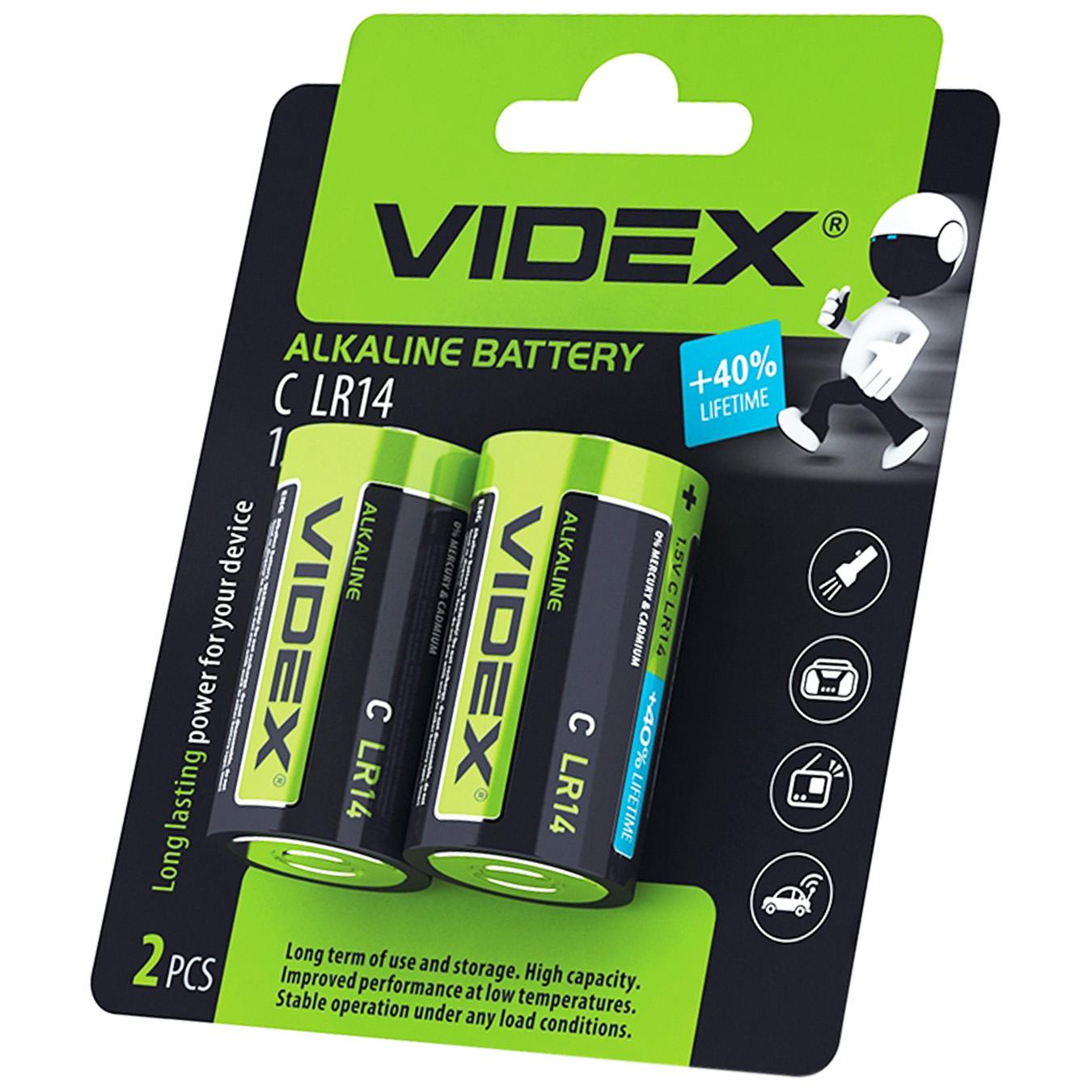



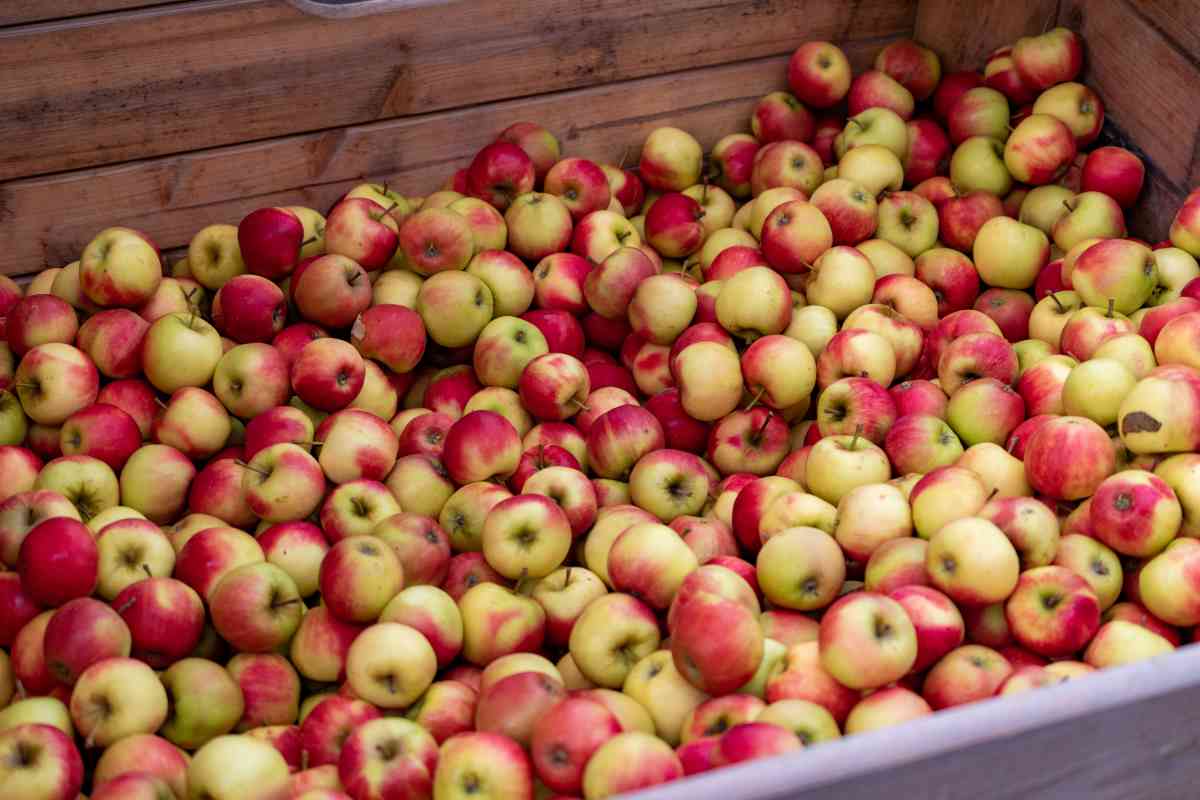
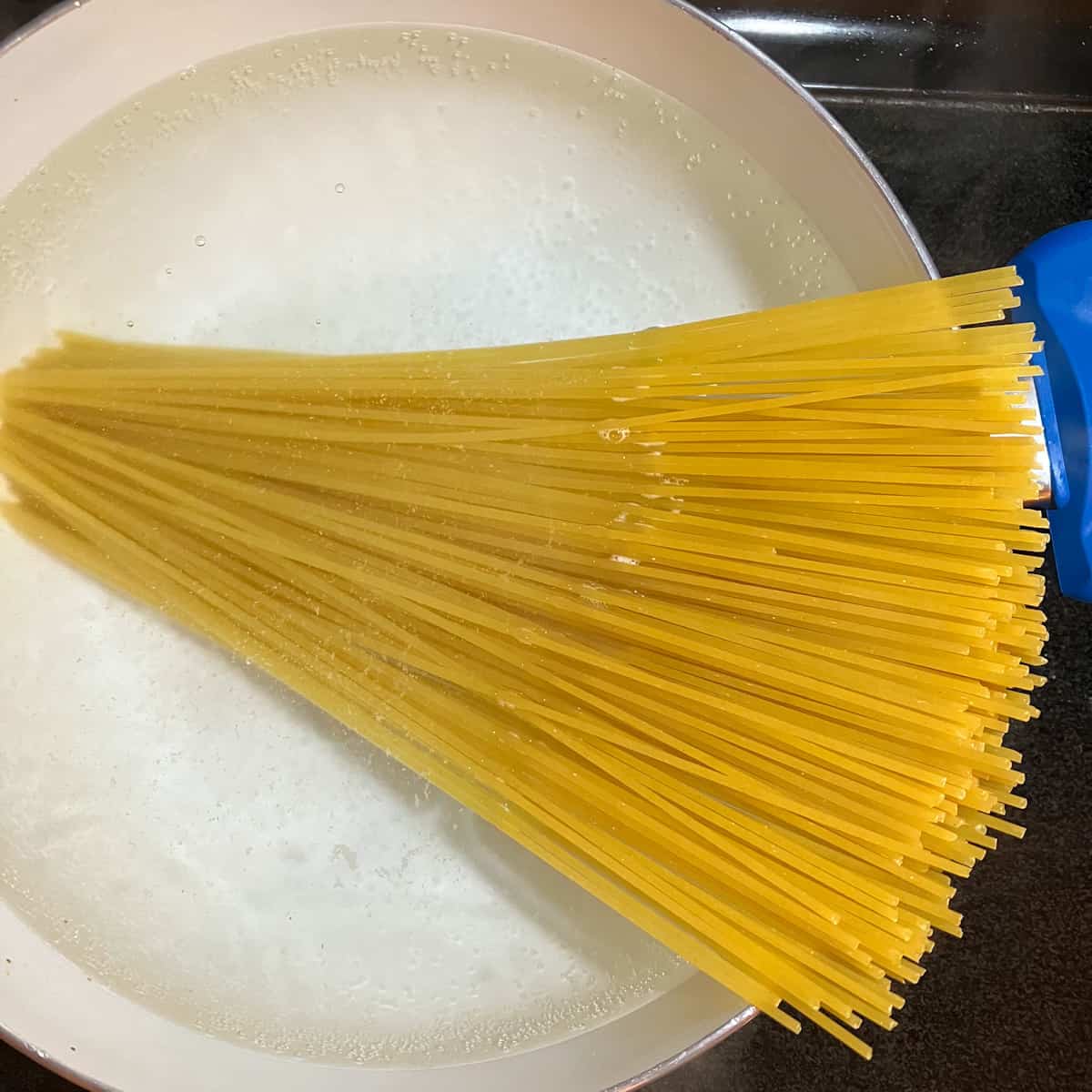
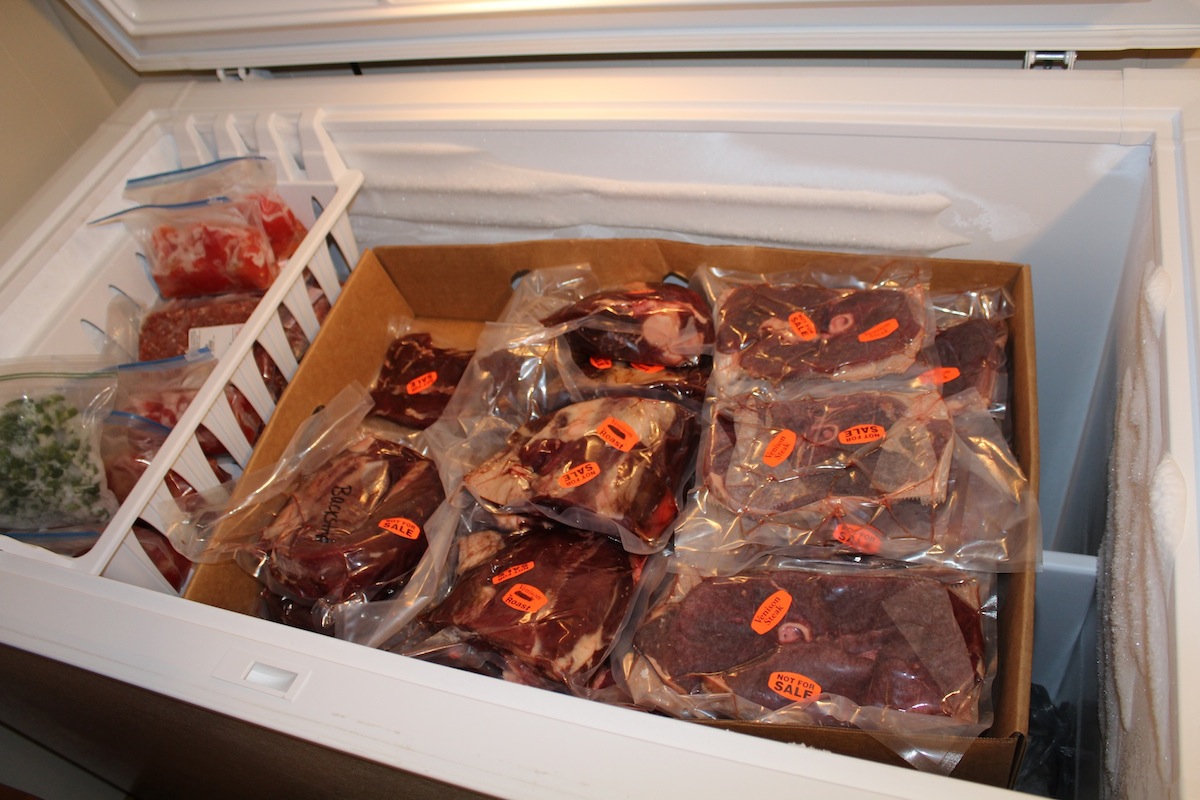

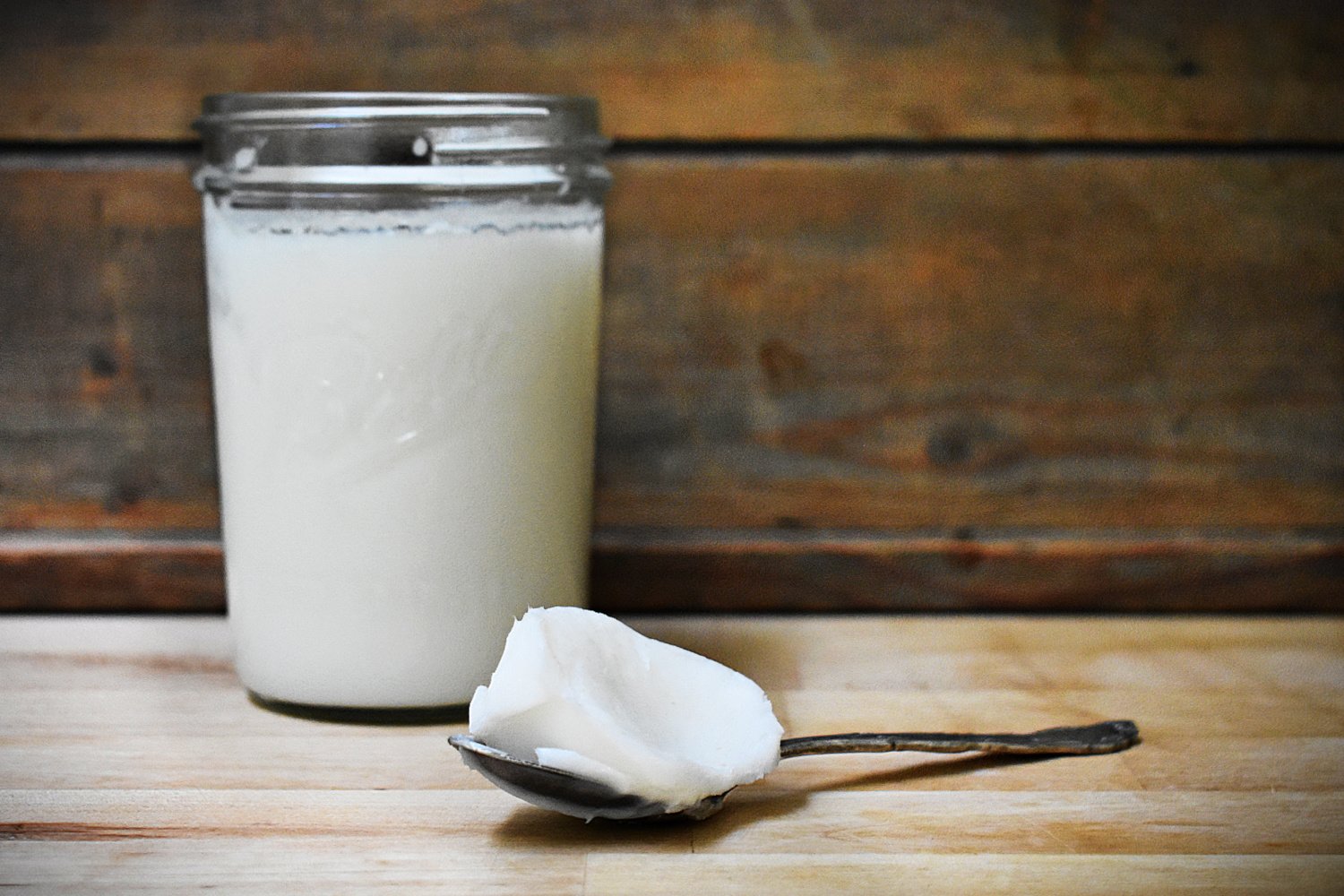
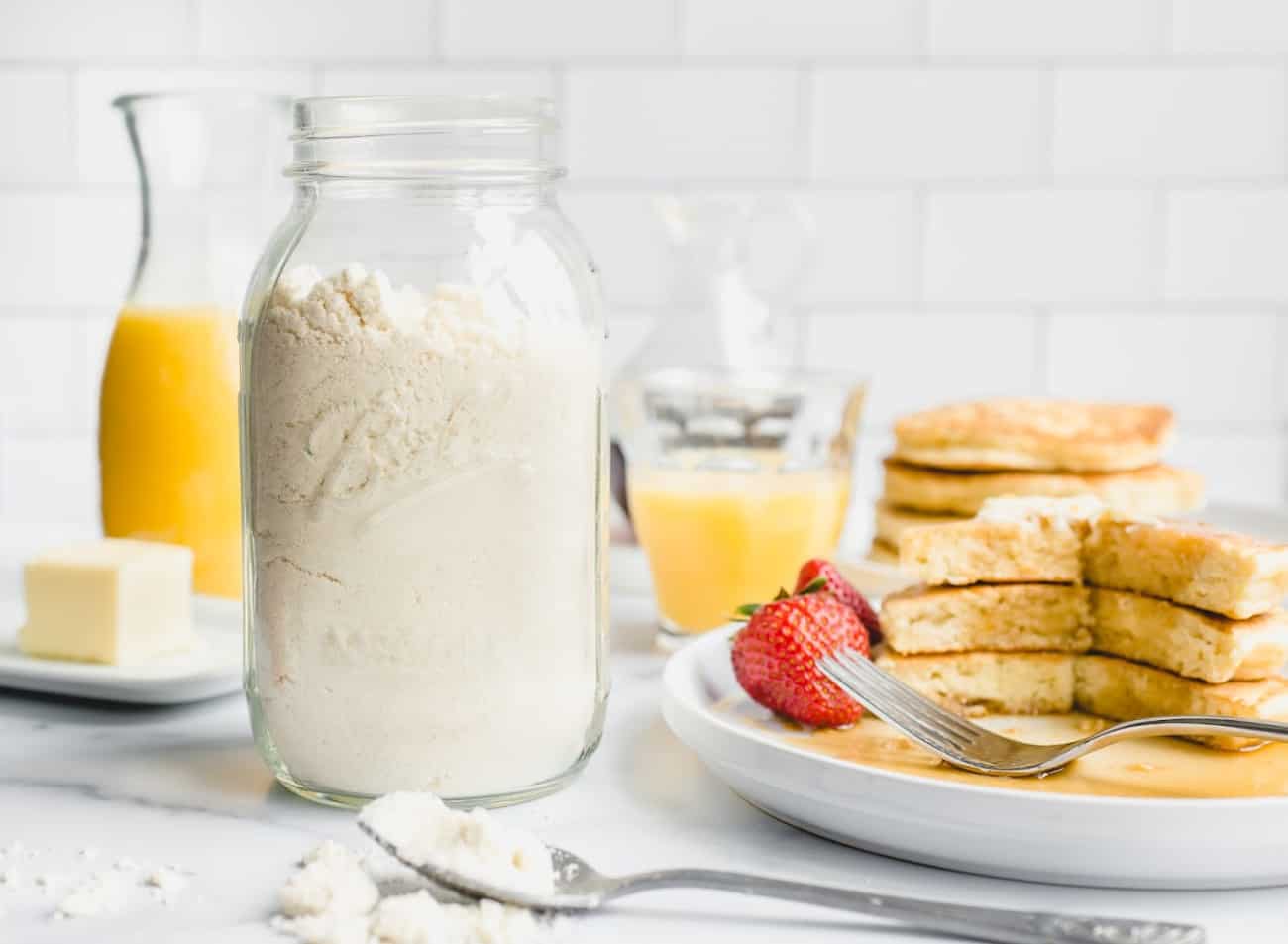

0 thoughts on “How To Store Powdered Eggs Long Term”